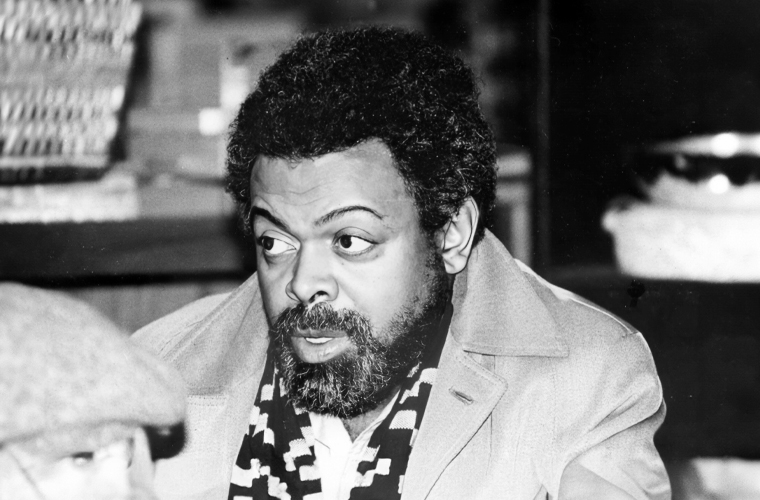Amiri Baraka, born Everett LeRoi Jones, was a prominent African-American writer, poet, and playwright. His work was known for its powerful and unapologetic exploration of race, politics, and social issues. Baraka’s impact on American literature and culture is significant, as he was a leading figure in the Black Arts Movement of the 1960s and 1970s. Born on October 7, 1934, in Newark, New Jersey, Baraka grew up in a racially segregated society, which deeply influenced his perspective and artistic expression. He attended Howard University, where he initially pursued a degree in engineering but later shifted his focus to English. After leaving Howard University, Baraka served in the U.S. Air Force for a brief period before returning to civilian life and immersing himself in the world of literature and activism.
In the late 1950s and early 1960s, Baraka emerged as a prominent voice in the Beat Generation, associating with writers such as Allen Ginsberg and Jack Kerouac. However, his literary and political trajectory took a significant turn following the assassination of Malcolm X in 1965. This event sparked a profound transformation in Baraka’s ideology and artistic vision, leading him to embrace Black nationalism and adopt the name Amiri Baraka. Baraka’s writing became increasingly radical and confrontational as he sought to challenge the prevailing social and cultural norms. His poetry collection “Black Magic” (1969) and the play “Dutchman” (1964) exemplify his unyielding commitment to addressing issues of systemic racism and oppression. Through his art, Baraka sought to provoke thought, evoke emotion, and ignite social change.
As a key figure in the Black Arts Movement, Baraka advocated for the creation of art that reflected the experiences and struggles of African Americans. He believed that literature and artistic expression could serve as powerful tools for liberation and empowerment within marginalized communities. In 1965, Baraka co-founded the Black Arts Repertory Theatre/School (BARTS) in Harlem, providing a platform for emerging Black artists to showcase their work and engage with the community. Baraka’s influence extended beyond his literary contributions; he was also deeply involved in political activism. He was a vocal critic of racial injustice and systemic inequality, using his platform to advocate for civil rights and black liberation. His commitment to social change often brought him into conflict with mainstream institutions and political authorities.
Throughout his career, Amiri Baraka produced an extensive body of work that encompassed poetry, essays, plays, and music criticism. His writing style was characterized by its raw emotion, incisive commentary, and unflinching portrayal of societal realities. Baraka’s impact on American literature continues to be felt, as his uncompromising commitment to addressing issues of race and identity remains relevant in contemporary discourse.
Amiri Baraka passed away on January 9, 2014, leaving behind a legacy of artistic innovation and social activism. His contributions to literature and his unwavering dedication to advocating for social justice have solidified his position as a trailblazer in the realm of African-American culture and intellectual thought. As we reflect on his life and work, we recognize Amiri Baraka’s enduring influence on the literary landscape and his indelible mark on the ongoing struggle for equality and justice.


